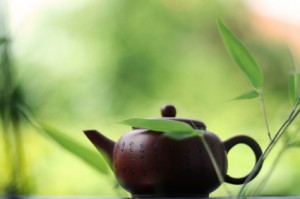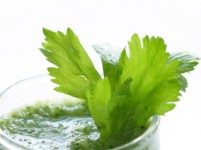

Always on the lookout for tea, my eye was drawn to a new brand in my favorite health food store: Tulsi Tea, made by Organic India. What really grabbed me was the cover copy, which said that Tulsi is also known as Holy Basil. Holy Basil is a healing herb that has been coming into my radar a lot recently: wanting to know more, I read on. “Throughout India, Tulsi is considered ‘The Queen of Herbs’ and is revered as a sacred plant infused with healing power. …[with] health benefits that support the body’s natural immune system while relieving the body’s negative reaction to stress.”
Given that some of the four or five varieties of Tulsi Tea offered by the company also contained black tea (OK, I am a caffeine addict), I bought a few different types, and have been enjoying it every day since.
Known as an adaptogenic herb, Holy Basil is used extensively as a stress reducer. Adaptogenic herbs exert a normalizing influence on the body and help the body cope with stressors, including ones that are biological, emotional, and chemical. A version of the homeopatic Rescue Remedy, in a sense. Adaptogenic herbs are also rich in antioxidants.
There are two varieties of holy basil, the milder white (or pale green), and the more robust tasting red. Holy basil is not the same as the basil you use to make pesto, and the flavor is spicier.
Holy Basil is anti-bacterial, anti-fungal, and anti-inflammatory. As an herb that is sacred in the Hindu and Ayurvedic traditions, it is no surprise that it is considered to be purifying both for the mind and for the body.
What more could one ask for in a cup of tea?
By Annie B. Bond, best-selling and award-winning author of five green living books, thousands of blogs, and all the tips in the Greenify Everything app.



